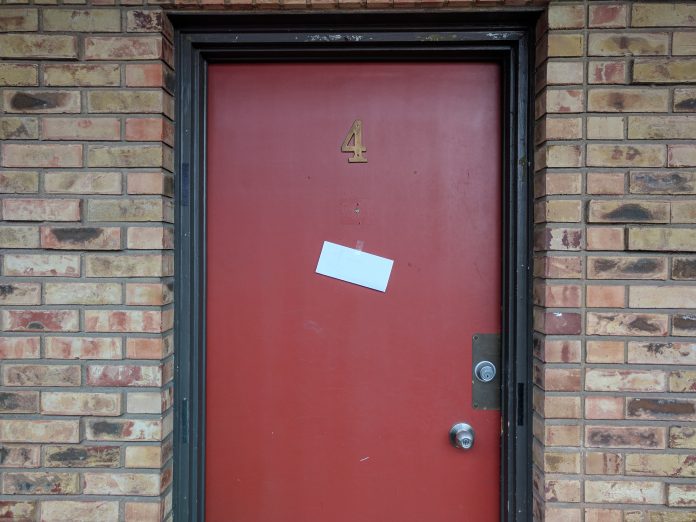In the midst of election season it’s hard to keep up with the volume of candidate questionnaires and the information they offer. One questionnaire might be interesting for readers of this website. Seattle Fair Growth, took the time to craft questions focused on land-use, housing, and zoning. These questions were likely crafted to further the group’s primary goals, articulated on their home page:
- Reject citywide upzones–one size does not fit all
- Give communities a voice in how they grow
- Preserve existing affordable housing as part of a citywide solution
- Require developers to contribute their fair share with impact fees for infrastructure
- Be realistic about parking–we still need cars
- Handle first things first. Solve existing problems before density makes them worse
Their questionnaire covers some interesting topics. For example: “Is Seattle Divided Politically Between Renters and Homeowners?” Since most people have close personal ties to folks who rent and own, it’s easy to see shared values. This suggests there is, or at least could be, political alignment.
Yet there are clear and stark differences between homeowners and renters. All city councilmembers and the mayor are homeowners. Gene Balk at The Seattle Times reports that only 28% of black households in King County are homeowners, compared to 63% of white households. Matthew Desmond at The New York Times reports that “The average homeowner boasts a net worth ($195,400) that is 36 times that of the average renter ($5,400).” Data from 2012–before rents increased about 57% – show approximately 31% of homeowners were cost burdened compared to 47% of renters. And of course cost burden doesn’t consider the financial flexibility from having wealth in a home.
The wide demographic differences make sense because homeowners benefit from rising real estate values while renters suffer. Housing can’t be a good investment and affordable. In other words, homeownership, or lack of ownership, is likely a cause of demographic differences.
The term homeowners is a humanizing term, evoking our friends and neighbors. But homeowners belong to another group that is more clearly at odds with renters. Homeowners are landowners. There are probably no two groups whose economic fortunes are more opposed than landowners and renters.
Developing A Renter Political Constituency
Returning to the questionnaire, it first asked if renters and homeowners were politically opposed and then asked if neighborhoods and developers were politically opposed. Some people do see developers opposed to neighborhood interests. It’s worth asking, what particular activity is it that make developers opposed to neighborhood interest? Is putting nails in wood to construct homes the problem? Or is it the system that profiting by selling homes to the highest bidder? If the latter activity is the problem, why do homeowners get a pass when they do the exact same thing? One possible explanation is that keeping the focus on developers–instead of including landowners more generally–allows folks whose primary concerns are design, density, parking, and aesthetics to voice outrage in a socially acceptable way.
These pairings disregard the most important point. The housing affordability crisis is laid at the feet of landlord and developers who are profiting off of land appreciation but rarely do we lump homeowners in the same buck. All three of these groups are landowners. Identifying landowners as a distinct political group, rather than separating homeowners from landowners, impacts how we think about policy. For example:
- Why are property taxes commonly considered bad, despite evidence they reduce housing prices and volatility?
- When people say property taxes are bad, are they renter or landowners speaking for renters?
- Why do people believe property taxes are passed on to renters, when there is some evidence to the contrary (although evidence overall is inconclusive)?
- Is the opposition to rezones, especially single-family rezones, coming from renters or landowners speaking for renters?
Homeowners shouldn’t be vilified. Homeownership offers many benefits (though the benefits are likely due to housing stability and wealth rather than homeownership itself). These benefits make homeownership a rational choice. However, homeowners are landowners and should be treated as such. Clarify the perspectives of landowners and renters within any policy debate will offer critical insights.
More importantly, while homeowners make a rataional individual choice, we must expect more from candidates and electeds. They must acknowledge that landowners, including homeowners, have conflicting financial interests with renters. There is no system in which we incentivize people to build wealth through homeownership that will work for renters. Any system that doesn’t work for renters will always leave behind a huge portion of residents.
To illustrate this point, city council could pass funding today to provide vouchers to anyone that is or was economically displaced. This funding could come from a head tax or some other corporate tax that would would let landowners off the hook. Alternatively, the funding could come from a property tax that also automatically exempts low income folks and subsidizes cost burdened households in exchange for limiting their capital gains. The former funding leaves a vast amount of wealth untouched and taxes activities that could move to other municipalities. The latter funding hits the city’s biggest source of wealth, taxes many of the same companies and does it in a way that can’t really be avoided.
Most importantly though, candidates must focus on policy that increases housing stability. Policy needs to move away from a system that transfers unearned wealth from land appreciation to landowners. Every time someone talks about housing policy, we should ask the question, “Does this center renters?”
Editor’s Note: The language about the evidence of who pays property taxes has been edited for clarity.

Owen Pickford
Owen is a solutions engineer for a software company. He has an amateur interest in urban policy, focusing on housing. His primary mode is a bicycle but isn't ashamed of riding down the hill and taking the bus back up. Feel free to tweet at him: @pickovven.

